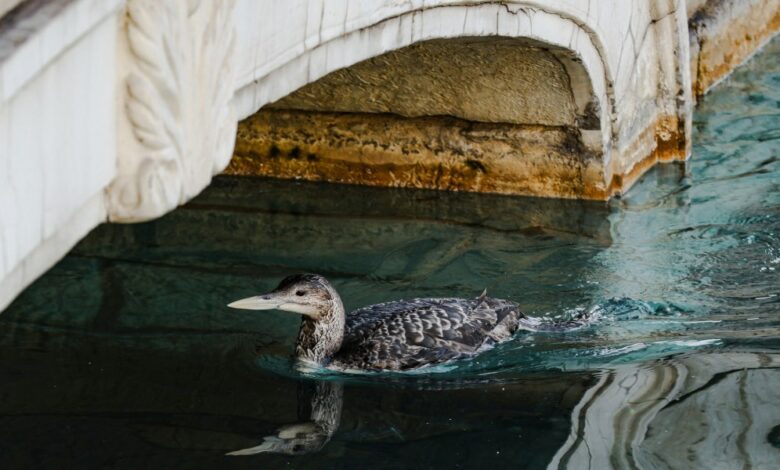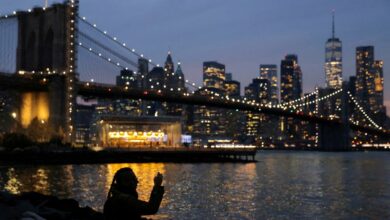Why did Las Vegas Bellagio fountain stop because of a bird?


A visit from a rare, fine-feathered tourist on the Las Vegas Strip interrupted a hotel-casino’s prominent water show before wildlife biologists captured the yellow-billed loon and relocated it Wednesday, unharmed, to an unspecified remote location where they expect it to resume its migratory trek north.
The Bellagio said in a social media post Tuesday that it paused its fountains after the loon “found comfort on Las Vegas’ own Lake Bellagio.”
On Wednesday, the bird was removed by the Nevada Department of Wildlife and the resort’s music and choreographed water-spray show resumed in the afternoon, MGM Resorts International spokesperson Brian Ahern said.
The yellow-billed loon is an international species of concern that is considered to be “one of the 10 rarest birds that regularly breed on the mainland U.S.,” according to the National Park Service.
Initially, the fountain shows were paused while officials figured out how to proceed, Ahern said.
Concerned birders asked state wildlife officials to intervene, department spokesperson Doug Nielsen said. The bird, a juvenile, likely sought shelter from a storm, Nielsen said, noting that it isn’t uncommon for migratory birds to visit the valley.
“They normally nest around the Arctic Circle and winter in Canada, the U.S., Norway or Siberia,” said Kurt Buzard, a veteran bird spotter who said he believes he saw the same distinctive bird a week ago at the Henderson Bird Viewing Preserve southeast of Las Vegas. “I think it’s lost and probably disoriented.”
Buzard said the last time he remembered hearing about a yellow-billed loon in southern Nevada was in the late 1990s at the Ash Meadows National Wildlife Refuge in Nye County, northwest of Las Vegas.
He worried that because neither the man-made lake at the Bellagio nor the former municipal water treatment pond at the Henderson preserve had fish, the bird he saw would be too hungry to continue its migratory path.
Security officials working with the wildlife biologists initially had hoped the uninvited guest would leave on its own without requiring an escort.
But Nielsen said in an email to The Associated Press that they decided Wednesday morning to capture and relocate the bird “to a more suitable and remote location where it has space, food and quiet surroundings.”
“According to the biologist who oversaw the capture, the bird had no apparent injuries and appeared to be in good health,” the state wildlife department official said.
Nielsen said birds sometimes get a bit off course during their annual migration due to such things as heavy winds or poor weather conditions.
“The important thing at this point is the bird is where it has an opportunity to get reoriented and resume its northern migration,” he said.




